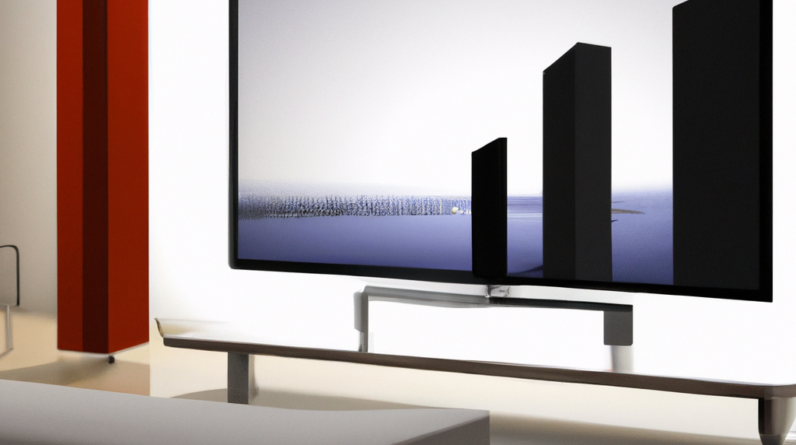
Are you tired of dealing with the negative effects of hard water in your home? From limescale build-up to dry, itchy skin, hard water can be a hassle to deal with. But fear not, as there is a solution – choosing the best water softener for hard water. With so many options available, it can be overwhelming to figure out which one is best for your specific needs. In this article, we will break down the process and provide you with helpful tips on how to select the right type of water softener for hard water, ensuring that you can enjoy the benefits of soft, clean water in your home.
Factors to Consider
Water Hardness Level
The first factor to consider when choosing a water softener is the hardness level of your water. Hard water typically contains high levels of minerals such as calcium and magnesium. You can easily determine the hardness of your water by conducting a simple test or contacting your local water utility. The hardness level will help you determine the type of water softener that is best suited to effectively treat your hard water.
Water Usage
Another important factor to consider is your household’s water usage. This includes factors such as the number of people in your household, the number of bathrooms, and the frequency of water usage. The amount of water used in your home will determine the size and capacity of the water softener you need. It is important to choose a water softener that can handle your household’s water demand to ensure optimal performance.
Regeneration Process
The regeneration process is a critical aspect to consider when selecting a water softener. During the water softening process, the resin bed in the softener tank becomes saturated with minerals and needs to undergo a regeneration process to remove these minerals and recharge the resin bed. Different water softeners may use different regeneration processes, such as timed regeneration or demand-initiated regeneration. Understanding the regeneration process will help you choose a water softener that aligns with your needs and preferences.
Size and Capacity
The size and capacity of a water softener are important considerations to ensure it can effectively meet your household’s demands. The size of the water softener generally refers to its physical dimensions, while the capacity refers to its ability to remove hardness minerals from the water. Choosing the right size and capacity will depend on factors such as your household’s water usage, peak flow rate, and available space for installation. It is crucial to select a water softener that can handle your household’s needs without compromising performance.
Installation Requirements
Before purchasing a water softener, it is important to understand the installation requirements. This includes considering factors such as plumbing system compatibility, water supply line connections, drainage systems, and power supply requirements. Some water softeners may require professional installation, while others can be installed by the homeowner. Understanding the installation requirements will help ensure a smooth installation process and optimal performance of the water softener.
Types of Water Softeners
Salt-Based Water Softeners
Salt-based water softeners are one of the most common types of water softeners. These systems use an ion exchange process to remove hardness minerals from the water. During this process, the resin bed in the softener tank attracts the calcium and magnesium ions and replaces them with sodium ions, effectively softening the water. Salt-based water softeners are known for their effectiveness in removing hardness minerals but require regular maintenance and the addition of salt for regeneration.
Salt-Free Water Softeners
Unlike salt-based water softeners, salt-free water softeners do not remove hardness minerals from the water. Instead, they use alternative methods such as template-assisted crystallization or ion exchange media to neutralize the minerals and prevent them from adhering to surfaces. Salt-free water softeners are often considered a more environmentally-friendly option and require less maintenance compared to salt-based systems. However, they may not be as effective in treating extremely hard water.
Magnetic Water Softeners
Magnetic water softeners are a non-chemical alternative to traditional water softeners. These systems use a magnetic field to alter the structure of the minerals in the water, preventing them from forming scale. While magnetic water softeners are relatively easy to install and maintain, they may not be as effective in treating all types of hard water. Additionally, their effectiveness can vary depending on the type of pipe material in your plumbing system.
Electronic Water Descalers
Electronic water descalers, also known as electronic water conditioners, use electromagnetic waves to alter the structure of the minerals in the water. This prevents the minerals from adhering to surfaces and forming scale. Electronic water descalers are often easy to install and require minimal maintenance. They are also suitable for a wide range of hardness levels. However, it is important to note that electronic water descalers do not remove hardness minerals from the water, but rather change their structure.
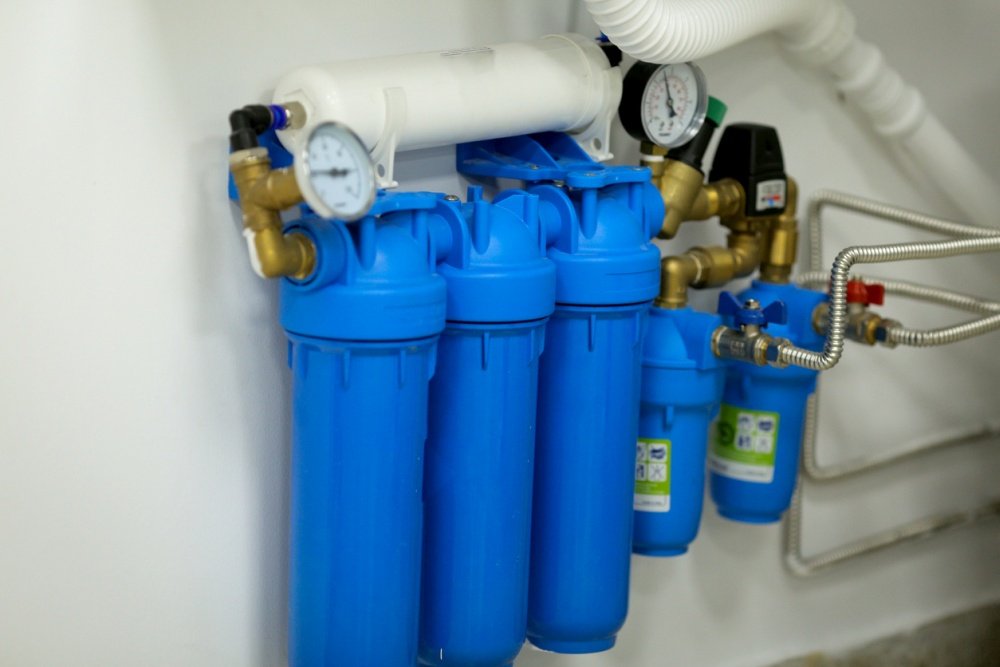
This image is property of cdn.homedit.com.
Salt-Based Water Softeners
Ion Exchange Process
Salt-based water softeners use an ion exchange process to remove hardness minerals from the water. The resin bed in the softener tank is composed of small polymer beads that attract calcium and magnesium ions. As the water passes through the resin bed, these ions are replaced with sodium ions, effectively softening the water. Over time, the resin bed becomes saturated with hardness minerals and needs to undergo a regeneration process to recharge the resin.
Demand-Initiated Regeneration
Many modern salt-based water softeners feature demand-initiated regeneration, also known as metered regeneration. This means that the softener regenerates based on your household’s actual water usage, rather than on a predetermined schedule. Demand-initiated regeneration helps optimize salt and water usage, ensuring that the softener regenerates only when necessary.
Dual-Tank System
Some salt-based water softeners utilize a dual-tank system. This means that the softener has two resin tanks, allowing for continuous soft water supply even during the regeneration process. When one tank is regenerating, the other tank remains in service, ensuring uninterrupted access to soft water.
Metered Control Valve
The metered control valve is an essential component in salt-based water softeners that allows for precise control of the regeneration process. This control valve measures the amount of water treated and triggers the regeneration process once a certain capacity is reached. This helps optimize salt and water usage by regenerating the softener only when necessary.
Salt-Free Water Softeners
Template-Assisted Crystallization
Salt-free water softeners that use template-assisted crystallization (TAC) work by converting hardness minerals into microscopic crystal particles. These crystal particles are unable to adhere to surfaces and form scale. Instead, they remain suspended in the water and are easily flushed out by the flow of water. Template-assisted crystallization is an effective method of preventing scale buildup, especially in areas with moderate to moderately hard water.
Ion Exchange Media
Some salt-free water softeners use ion exchange media to neutralize hardness minerals in the water. These media, such as polyphosphates or zeolite, attract and bind to the calcium and magnesium ions, preventing them from forming scale. While not as effective as salt-based systems in removing hardness minerals, ion exchange media provide a viable alternative for those who prefer not to use salt.
Water Conditioner Systems
Water conditioner systems, also known as catalytic water conditioners, use a catalytic process to alter the atomic structure of hardness minerals. This alteration prevents the minerals from adhering to surfaces and forming scale. Water conditioner systems are often effective in preventing scale buildup and require minimal maintenance. However, they do not remove hardness minerals from the water.
Scale Prevention Systems
Scale prevention systems are another type of salt-free water softener that use various methods to prevent scale buildup. These systems may utilize electronic impulses, physical filters, or other technologies to disrupt the formation and adhesion of scale. Scale prevention systems are often easy to install and require minimal maintenance. However, their effectiveness may vary depending on the hardness level of the water.
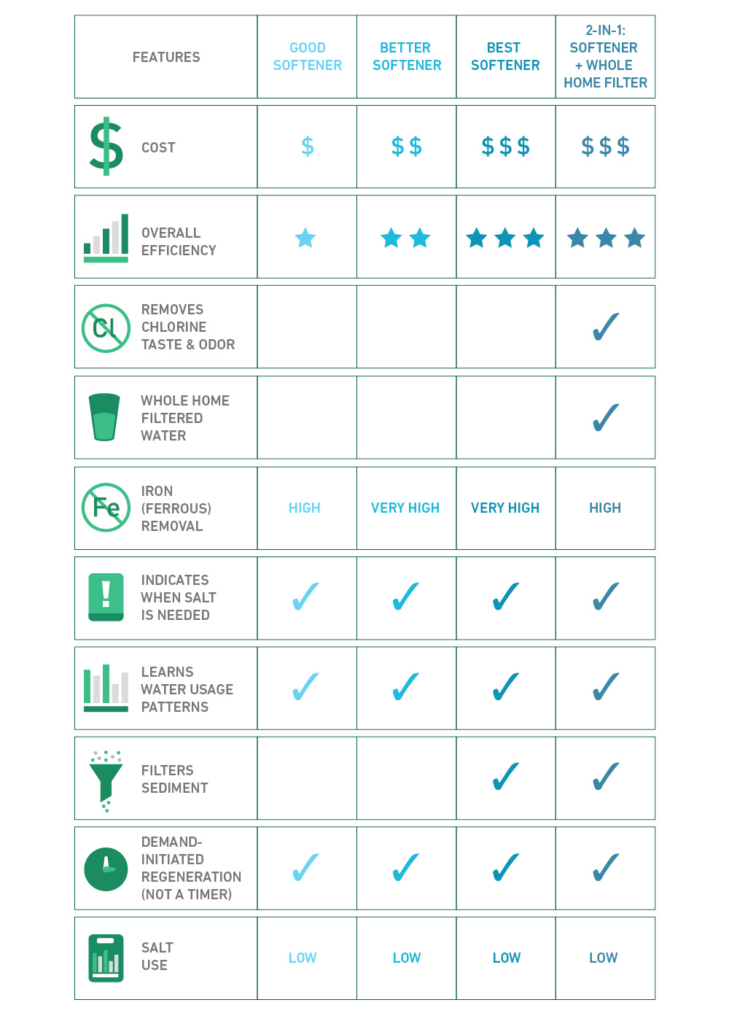
This image is property of homewater101.com.
Magnetic Water Softeners
Principle of Operation
Magnetic water softeners operate based on the principle of magnetic fields. These systems utilize magnets or electromagnetic coils that are installed around the water pipes. As the water passes through the magnetic field, the structure of the hardness minerals is altered, preventing them from forming scale. Magnetic water softeners are relatively easy to install and do not require any additional chemicals or maintenance.
Effectiveness and Limitations
While magnetic water softeners can be effective in preventing scale buildup, their efficiency in actually softening the water is still a topic of debate. Magnetic water softeners do not remove hardness minerals from the water but rather change their structure. As a result, the dissolved minerals may still cause some effects associated with hard water, such as reduced soap lathering. Additionally, the effectiveness of magnetic water softeners may vary depending on the type of pipe material in your plumbing system.
Installation and Maintenance
Installing a magnetic water softener is relatively simple, as it involves attaching the magnetic or electromagnetic coils around the water pipes. Maintenance requirements are minimal, as these systems do not require refilling or regeneration. However, it is important to ensure that the magnetic field is properly aligned and sized for optimal performance.
Compatibility with Pipe Material
The effectiveness of magnetic water softeners can be influenced by the type of pipe material in your plumbing system. Magnetic fields may have varying effects on different pipe materials such as copper, PVC, or galvanized steel. It is advisable to consult with a professional or the manufacturer to ensure compatibility and effectiveness when considering a magnetic water softener.
Electronic Water Descalers
Working Mechanism
Electronic water descalers utilize electromagnetic waves to alter the atomic and molecular structure of hardness minerals in the water. This prevents the minerals from adhering to surfaces and forming scale. Electronic water descalers can be installed on the incoming water supply line, treating the water before it enters your plumbing system. These systems often include a control unit that generates the electromagnetic waves and can be adjusted to suit the hardness level of the water.
Benefits and Limitations
One of the main benefits of electronic water descalers is that they do not require salt or chemicals for operation. They are also easy to install and do not require ongoing maintenance. Additionally, electronic water descalers are suitable for a wide range of hardness levels and can be effective in preventing scale buildup. However, it is important to note that electronic water descalers do not remove hardness minerals from the water, but rather alter their structure. As a result, the water may still exhibit some characteristics of hard water.
Installation and Maintenance
Installing an electronic water descaler typically involves attaching the control unit to the incoming water supply line. The installation process is often straightforward and can be completed by the homeowner. Maintenance requirements are minimal, and the control unit may only need periodic cleaning or adjustment.
Suitability for Different Hardness Levels
Electronic water descalers are generally suitable for a wide range of hardness levels. Some models may include adjustable settings to accommodate varying degrees of hardness. However, it is important to consider the specific hardness level of your water and choose an electronic water descaler that is appropriate for your needs.
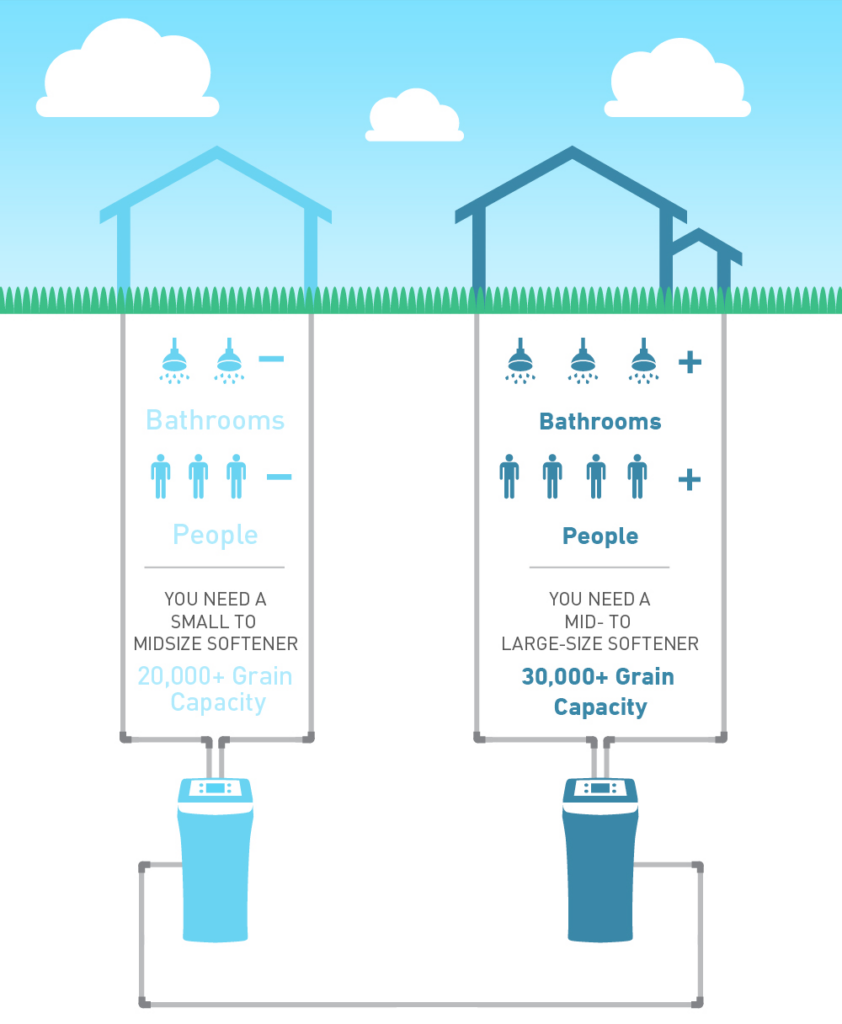
This image is property of homewater101.com.
Size and Capacity Considerations
Determining Household Water Demand
To determine the appropriate size and capacity of a water softener, it is important to assess your household’s water demand. Factors to consider include the number of people in your household, the number of bathrooms, and the frequency of water usage. A larger household with more bathrooms and higher water usage will require a water softener with a larger capacity to ensure optimal performance.
Peak Flow Rate
Peak flow rate refers to the maximum amount of water used in your household at a given time. This can occur when multiple showers or appliances are in use simultaneously. It is important to choose a water softener that can handle the peak flow rate of your household to prevent any reduction in water pressure or performance.
Required Grain Capacity
The grain capacity of a water softener refers to its ability to remove hardness minerals from the water before requiring regeneration. This capacity is typically measured in grains per gallon (GPG). To determine the required grain capacity, you need to consider the hardness level of your water and your household’s water usage. A higher hardness level and greater water usage will require a water softener with a higher grain capacity.
Space Availability
Before purchasing a water softener, it is essential to assess the available space for installation. Water softeners come in various sizes, and it is important to choose a model that fits within the available space. Considerations should be given to the dimensions of the unit as well as the required clearance for maintenance and access to control valves.
Installation Requirements
Plumbing System Compatibility
Before installing a water softener, it is crucial to ensure compatibility with your plumbing system. This includes considering factors such as pipe material, pipe size, and existing plumbing connections. Some water softeners may require specific adapters or fittings to connect with your plumbing system. It is advisable to consult with a professional or the manufacturer to ensure compatibility before purchasing and installing a water softener.
Water Supply Line
The water supply line is an important component in the installation of a water softener. It is necessary to determine the location of the main water supply line entering your home and identify a suitable location for installing the water softener. A shut-off valve may need to be installed to allow for maintenance and servicing of the water softener. Proper installation of the water supply line is crucial to ensure optimal performance and efficiency of the water softener.
Drainage System
Water softeners require a drainage system to remove the wastewater generated during the regeneration process. It is important to determine the location of an appropriate drain for the discharge of the wastewater. The drain should be able to handle the flow rate and volume of the wastewater. Additionally, it is important to consider any local plumbing codes or regulations regarding the discharge of wastewater from water softeners.
Power Supply
Some water softeners may require a power supply for operation. This can include control units, timers, or motorized valves. It is important to ensure that a power supply is easily accessible near the installation location. Installation of a dedicated electrical circuit or outlet may be necessary. Additionally, it is important to follow all safety guidelines and consult with a professional if you are unsure about electrical requirements.
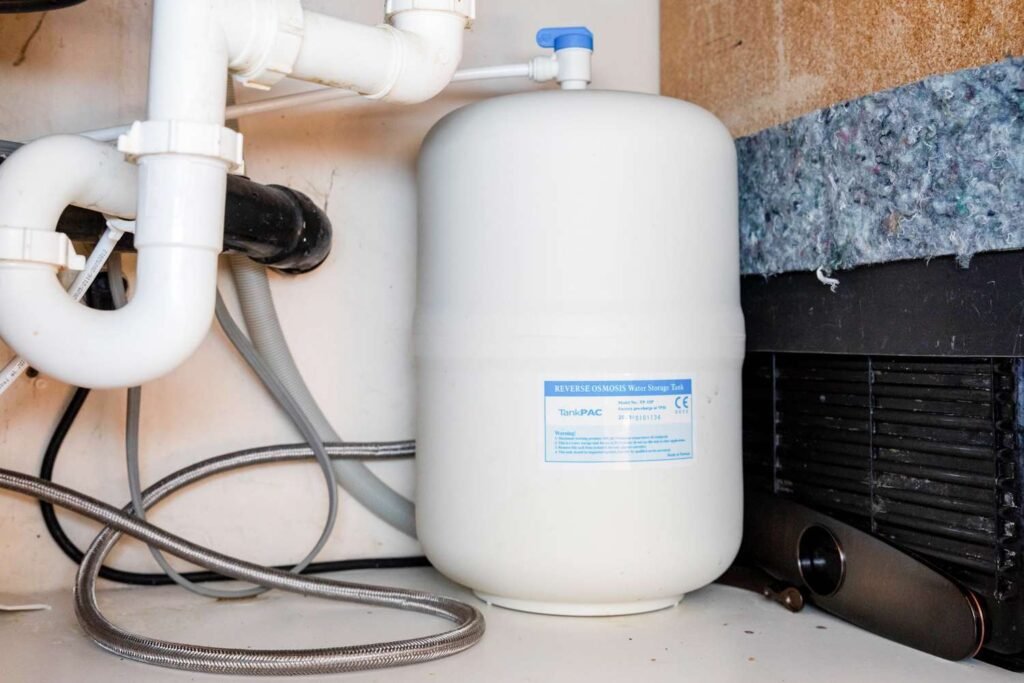
This image is property of www.thespruce.com.
Long-Term Costs and Maintenance
Purchase Cost of the Softener
The initial purchase cost of a water softener should be considered when selecting the right system. Water softeners can vary in price depending on the type, size, and brand. It is important to weigh the cost against the specific needs of your household. While salt-based water softeners may have a lower upfront cost, they require ongoing expenses for salt and maintenance. Salt-free water softeners and electronic water descalers may have higher initial costs but require less ongoing expenses.
Salt and Additives
Salt-based water softeners require the addition of salt or brine for the regeneration process. The amount of salt needed will depend on the hardness of the water and the water softener’s grain capacity. It is important to consider the cost and availability of salt when evaluating the long-term costs of a salt-based water softener. Additionally, some salt-based water softeners may require the use of additives or resin cleaners to maintain optimal performance.
Water and Energy Consumption
Water and energy consumption should be taken into account when considering the long-term costs of a water softener. Salt-based water softeners often require a significant amount of water for the regeneration process. It is important to consider the additional water usage and its associated cost when evaluating the overall expenses. Additionally, some water softeners may require electricity for operation, leading to increased energy consumption.
Maintenance Requirements
Maintenance requirements should also be considered when selecting a water softener. Salt-based water softeners typically require regular maintenance tasks such as refilling the salt, cleaning the brine tank, and periodic resin bed cleaning. Salt-free water softeners and electronic water descalers generally require less maintenance but may still need occasional cleaning or adjustment. It is important to understand the maintenance requirements of the chosen water softener to ensure optimal performance and longevity.
Additional Features and Considerations
Digital Controls and Indicators
Some water softeners feature digital controls and indicators, providing convenient monitoring and control of the system. These features often allow you to adjust settings, view regeneration cycles, and monitor water usage. Digital controls and indicators can enhance the user experience and provide valuable information for maintenance and troubleshooting.
Water Testing and Monitoring
Regular water testing and monitoring are essential to ensure the continued effectiveness of a water softener. This can involve testing the hardness level of the water, checking for any signs of scale buildup, and monitoring the performance of the water softener. Some water softeners may include built-in monitoring systems, while others may require separate water testing kits or professional testing.
Warranty and Customer Support
The warranty and customer support offered by the manufacturer should be considered when selecting a water softener. A comprehensive warranty can provide peace of mind and protection against any defects or issues that may arise. Additionally, responsive customer support can be invaluable when seeking assistance with installation, maintenance, or troubleshooting.
Certifications and Standards
When choosing a water softener, it is advisable to look for products that have been tested and certified by reputable organizations. Certifications such as NSF International or the Water Quality Association (WQA) ensure that the water softener meets specific performance and safety standards. Compliance with these certifications can provide confidence in the quality and reliability of the chosen water softener.
In conclusion, selecting the right type of water softener for hard water requires careful consideration of various factors. These factors include water hardness level, water usage, regeneration process, size and capacity, installation requirements, long-term costs and maintenance, as well as additional features and considerations. By taking into account these factors and understanding the different types of water softeners available, you can make an informed decision to ensure optimal performance and improved water quality in your home.
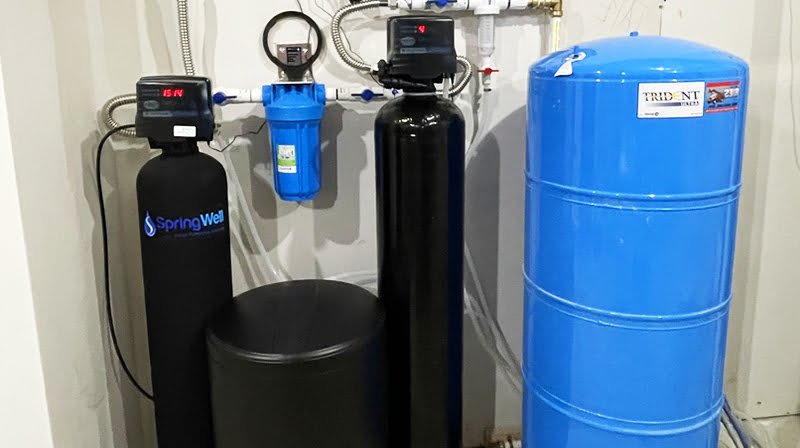
This image is property of www.best-osmosis-systems.com.






